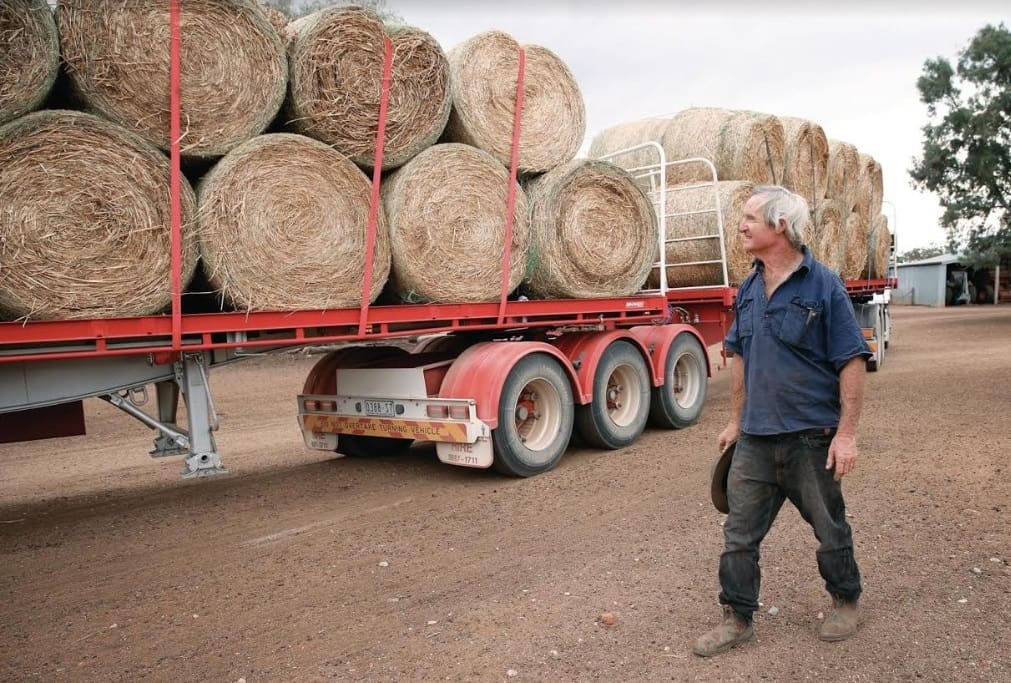
Victorian hay arrives at sheep producer Les Jones’ Goolhi property in central west NSW last year. (Photo: NSW Farmers, Newspix, Sam Ruttyn, Nick Cubbin)
HAY and grain freight costs from Victoria’s Wimmera region to some drought-stricken New South Wales and Queensland farmers are expected to reduce after the Victorian road train network was extended.
The Victorian Government has extended the road train network in the state’s Wimmera region for the transport of hay and grain to drought-affected areas of NSW and Queensland.
The expanded road train network will include the Western Highway from the South Australian border, the Borung Highway between Dimboola and Warracknabeal and the Henty Highway from Horsham to Ouyen.
Freight costs reduction expected
The NSW Government’s drought transport integrity adviser Derek Schoen said he expected there would be a corresponding decrease in freight costs with the extension.
Before the network extension road train operators had to decouple additional trailers at the NSW-Victorian border, drive them to the hay/grain pick-up location for loading and then back for recoupling.
“There is a lot of work in decoupling and recoupling trailers, depending on how far you have got to go into Victoria, it could add up to a few hundred kilometres,” he said.
Mr Schoen will notify the NSW Rural Assistance Authority of the new network situation for monitoring.
Victorian Farmers Federation (VFF) Grains Group president Ross Johns the extension could reduce freight costs by 20-25 per cent.
Mr Johns said the VFF and its members had been calling out for measures to make it easier for hay and fodder to reach farmers in need.
“VicRoads should be congratulated for listening and acting. This change will have a positive impact on many, both those transporting feed and those farmers urgently needing supplies,” he said.
“Given the current dry conditions, facilitating the efficient movement of hay and grain to drought-affected farmers is critical.”
Mr Johns said the next step was to broaden the drought fodder road train extension to also include livestock and general transport with road trains.
“Once you got this extension and have allowed these road trains to move, it makes logical sense to extend it to normal operations in time.”
Click here to see the VicRoads map of the extended network, including permit application details, and the truck and load limit conditions for road trains.

HAVE YOUR SAY